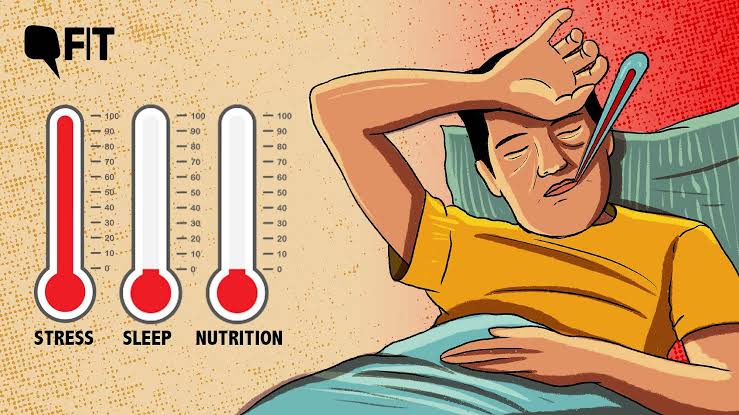High temperature is good for health, and lowering it may weaken immunity
Our society lives with the idea that health is a state of “feeling good” and “not feeling good.”
Disease.” We fear infection with bacteria, viruses, fungi, etc. Therefore, we use antibacterial soap, many types of sprays, medicines, and other sterile preparations. We are constantly preparing to fight the flu. But this war is harmful to our health and is not beneficial at all.
In ancient traditional societies, fever has always been viewed with great respect and understood for what it is. They knew the fever would rise and then fall. Now, as soon as the temperature rises, we quickly reduce it using medications.
These fever-reducing medications include acetaminophen and ibuprofen. These medications lower temperatures quickly, but they hinder the natural defense work of the immune system. This allows invasive organisms to remain in the body and cause chronic diseases.
The immune system is like a muscle, in order to grow and become stronger it must be exercised. If it does not resist diseases, it will not be strong. This resistance sometimes causes fever or cold. This is a natural adaptive reaction.
Having the flu or a cold accompanied by a fever may be the best way to know how strong a person’s health is. Perhaps his immune system has become so weak that it is unable to deal with the surrounding environmental factors, and the body has contracted a viral or bacterial infection.
High temperature activates the immune system
The immune system reacts to overcome the infection and strengthen the body. Some microorganisms can only live at a certain temperature. The body’s innate intelligence understands this and adapts to create an environment that is not suitable for microbes to live. As the temperature rises, the number of microbes in the body decreases. The fever often subsides on its own and only lasts a short time. It is not dangerous as long as it does not reach 40 degrees Celsius.
As the temperature rises, CD8+ killer T cells activate, which are able to destroy cancer cells and cells infected with viruses. Researchers have found that high body temperature increases CD8+ counts. This creates an immune response against a much larger infection.
Excessive sterilization of our environment and the use of synthetic chemicals for this purpose, such as chemical drugs and fever reducers, make our bodies more vulnerable. These products act as a crutch that does not allow the body to adapt and stimulate its forces. Frequent sterilization and rushing to seek treatment makes us more vulnerable in an environment full of health challenges.
When does heat become a concern?
Consult a doctor if the temperature exceeds 40 degrees Celsius or if it persists for longer than four days. If the fever is accompanied by a feeling of extreme fatigue, difficulty breathing, or convulsions, you should go to the emergency room.
When the temperature rises, drink plenty of water and fresh lemon juice. Fluids moisturize the body, and lemon helps the body quickly get rid of microbes. When the temperature rises to forty, a cold bath can help lower it slightly so that it does not cause harm to the vital organs in the body.

